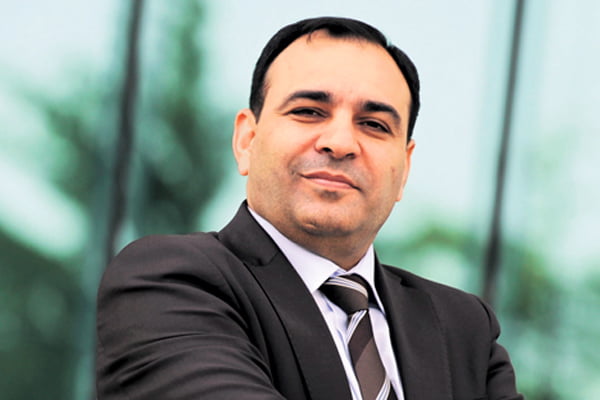Islamist vs. Islamic

Date posted: January 23, 2014
BÜLENT KENEŞ
It has become crystal clear that we cannot understand the current state of Turkish politics and how it can evolve in future without understanding the relations people, social groups and political movements have established with Islam in Turkey. Therefore, we need to underline the distinguishing characteristics of two different approaches to Islam’s relations with politics, society and the state.
Broadly speaking, there were two main approaches to Islam in Turkey. First, there is the indigenous conception of Islam; it originated in Anatolia and was nurtured by the Ottoman heritage of multiculturalism, inclusiveness and tolerance of diversity. It is based on an understanding of moderation that has been internalized completely by society through a process that lasted several hundred years, and it focuses on civil society, individualism and universal good instead of the state and similar instruments of oppression or repression in society. In general, this strand of Islam can be labeled “Islamic,” and the social and sociological dynamics that fall within this category existed/exist in the form of religious communities, religious orders and civil society movements.
The second category consists of “Islamist” movements, which are inspired by the political Islamist movements that emerged as a reaction to the West in Muslim countries that were occupied and colonized by Western countries, such as India, Pakistan, Egypt and some North African countries. These movements, which can be broadly defined as “Islamist,” are generally influenced by external/translated ideological/intellectual sources, and they tend to define themselves not as a social or civil movement, but in terms of some idealized political goals they aim to attain.
Political Islamist movements aim to seize the state directly, instead of focusing on individuals and society in the civil sphere. By controlling the state’s repressive power, they intend to impose their values on society in a top-down manner. Political Islamists see a state that is governed by a mentality other than theirs as the greatest disaster in this world, a dajjal (Antichrist) or taghoot (false deity) that must be destroyed, but at the same time, they believe their greatest ideal is to seize or control it, and that it can be blessed by them after they seize it.
The civil, tolerant and inclusive Islamic mentality, which is largely represented by the Hizmet movement for the time being, and the political Islamist mentality, which is traditionally and socio-politically represented and embodied by Milli Görüş (National View), have historically traveled along non-converging routes. The “Islamist” mentality has produced such political formations as the National Order Party (MNP), the National Salvation Party (MSP), the Welfare Party (RP), the Virtue Party (FP), the Felicity Party (SP), the People’s Voice Party (HAS) and partially, in recent years, the Justice and Development Party (AKP). The political Islamist mentality has also produced violence-prone, revolutionary, illegal and marginal networks in the illegal and illegitimate sphere. The Great Eastern Islamic Raiders Front (İBDA-C), Hezbollah, and similar radical Islamist organizations are examples of this mentality that occasionally borders on terrorism. Unlike the political Islamist mentality, the traditional moderate Islamic mentality has as its most distinctive characteristic a disapproval of revolutionism, radicalism, marginality and violence.
The intellectual sources of political Islamism as an ideological tend to be the translated works of leading figures of foreign Islamist movements. Over time, they have started to develop their original or domestic intellectual resources or also be inspired by some works of traditional Islamic thinkers. Thus, Abul A’la Maududi, the founder of the Jamaat-e Islami, which is known for its radical views and acts in Pakistan, Hasan al-Banna, the intellectual leader of the Muslim Brotherhood (MB), established in 1928 in Egypt, and Sayyid Qutb were especially influential for political Islamist movements in Turkey.
These political Islamist resources imported into Anatolia from foreign countries were later supplemented by Iran’s revolutionary books, and this addition to the mixture had an adverse impact on Turkey’s political Islamist groups, urging them to become more revolutionary and radical. Books by Iranian intellectual and revolutionary clerics such as Ali Shariati, Grand Ayatollah Sayyed Ruhollah Mostafavi Musavi Khomeini and Hussein-Ali Montazeri significantly influenced political Islamist movements in Turkey in the wake of the 1979 Islamic revolution in Iran. Even some political Islamist movements adopted the Iranian revolution as a role model.
The antidote to the radicalizing effect of the translated books of Maududi, Qutb and revolutionary Iranian mullahs has been the civilian Islamic movements that were spearheaded by Bediüzzaman Said Nursi, Süleyman Hilmi Tunahan, Abdülhakim Arvasi, Hüseyin Hilmi Işık, Mehmet Zahid Kotku and Anatolia’s other indigenous religious scholars, who are inspired by the views of Jalal ad-Din Muhammad Rumi and Yunus Emre and who are based on traditional religious orders and schools of Sufism. Since 1970s, the Hizmet movement, a social movement inspired by a well-respected Turkish-Islamic scholar, Fethullah Gülen, has emerged as a strong representative of the traditional and domestic Islamic approach and against the exogenously inspired political Islamist movements.
The Hizmet movement has followed in the footsteps of Nursi and, as Nursi did, has always kept its distance from radical Islamist movements and political Islamist movements. It has not adopted a hostile or competitive attitude towards these movements, but it has stayed away from them. In this context, since its emergence on the social scene, the Hizmet movement has always been suspicious of the Islamist/political movements that represent political Islam in Turkey. For instance, it has never backed any of the parties established by Necmettin Erbakan, which were opened after being closed one after the other. Instead, the followers of Gülen have opted to vote for and support various center parties freely. Moreover, their support has never amounted to partisanship. Rather, they have tended to back specific policies and the political parties that placed greater emphasis on democratization, demilitarization, transparency, accountability, fundamental rights and freedoms and economic stability.
While both political Islamism and the tolerant and civic Hizmet movement were pursuing different routes, these routes intersected in the early 2000s for the first time. More specifically, by proclaiming that it had rejected its political Islamist heritage and asserting that it had stripped off its “National View garb,” the AKP moved closer to the center and to the route followed by the Hizmet movement. Even in this process, there were times when the two movements overlapped.
The Hizmet movement — which has stuck to its civil Islam heritage — lent media support — which the AKP needed very badly at that time — to the AKP and made its civil, academic and bureaucratic human capital available to the AKP — which pretended to have severed its ties with political Islamism, although it was established by the members of the former National View. With the synergy stemming from this convergence, and by leveraging the European Union membership bid, Turkey implemented huge reforms and unprecedented democratization moves to undermine military tutelage. However, the Hizmet movement never developed partisanship towards the AKP during this process. It only lent support to the AKP’s reforms and democratization moves in line with its values and to the extent they overlap with democratic principles.
And yet, the disaster came when the AKP attained a level of success it had never imagined when it started. After the tutelary mechanisms were uprooted by the endorsement of several constitutional amendments in the referendum of Sept. 12, 2010, and the AK Party secured 50 percent of the national vote in the parliamentary elections of June 12, 2011 — when it promised to draft a new constitution — the senior AKP leaders and the oligarchic group surrounding them started to nurture different ambitions. In the final analysis, there was no longer any countervailing or counterbalancing dynamic they had to take into account. So, they thought, why should we not return to our essence? Why should we not implement what our original political Islamism preaches? Why should we not kick off a comprehensive social engineering effort using the overwhelming power and influence of the state we have seized?
Indeed, this is what they did right in the wake of the great election victory of 2011. They started to implement whatever their exogenous political Islamism entails. First, they would transform society into the ideal society they envisaged. Then, based on the success of the patronizing political Islamism project implemented in Turkey, they would become the leader of the Muslim world. This was what they planned to do, and to this end, they needed not more advanced laws or democratic rights and freedoms, but more power. For this reason, the AKP started to pursue policies that were diametrically opposite to those it had implemented in its first two terms.
Democratization and reform processes, which were favored by society, were largely halted. Moreover, there was regression in terms of the Supreme Board of Judges and Prosecutors (HSYK), the Court of Accounts and other high judiciary institutions. Likewise, the AKP started to trim the freedoms of the press, expression and assembly and purge everyone they saw as a threat from the media and bureaucracy by massive illegal profiling.
Thus, the Hizmet movement, as a major representative of the civil Islamic mentality, parted ways with the AKP, which had abruptly returned to its political Islamist tradition. Actually, the AKP — which moved closer to the Hizmet movement by declaring that it had cast off its political Islamist garb — steered away from this route and returned to political Islamism, which was its original ideology. Today, the Hizmet movement sticks to the tolerant, inclusive, freedom-oriented civil Islamic mentality and democratic values.
The AKP sees this ethical, value-centered and independent stance as a great threat, and therefore has kicked off a ruthless and vulgar campaign of destruction. Just like the rest of the world, we watch this destruction in bewilderment, as it is unparalleled in terms of the rule of law, democracy and ethical values.
Source: Todays Zaman , January 23, 2014
Tags: Democracy | Hizmet (Gulen) movement | Turkey |
























